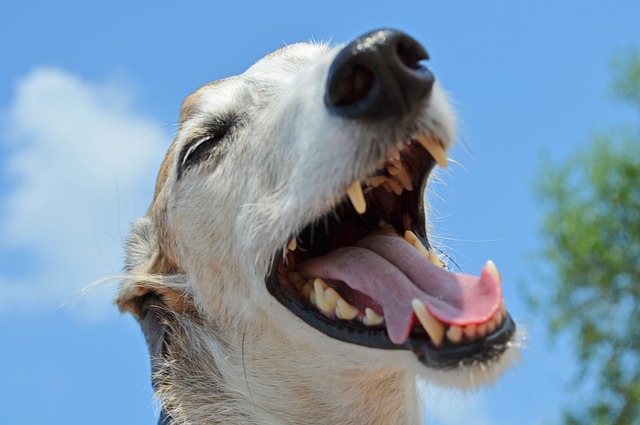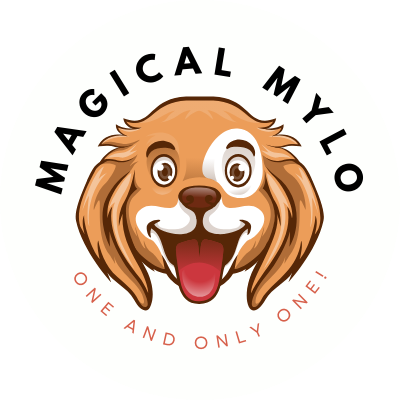+91 8073387610

A dogs oral health is an essential aspect of their overall well-being. Just like humans, dogs can suffer from dental problems such as gum disease, tooth decay, and bad breath.
However, with proper care and attention, you can help maintain your furry friend’s dental hygiene.
This article will provide a comprehensive guide on how to keep your dog’s teeth clean and healthy, covering various preventive measures, dental care routines, and professional veterinary assistance.
By implementing these practices, you can ensure your beloved companion enjoys a happy, pain-free smile for years to come.
Dogs oral health – Regular Dental Check-ups
Just like humans, dogs require regular dental check-ups by a veterinarian. Professional dental examinations can identify any existing dental issues and help prevent potential problems.
A vet can thoroughly examine your dog’s teeth and gums, checking for plaque buildup, tartar, cavities, or any signs of periodontal disease.
They may also recommend dental cleanings or other necessary procedures to maintain your dog’s oral health.
Aim to schedule dental check-ups at least once a year, or as recommended by your vet, to catch any problems early on and ensure your dog’s teeth remain clean and healthy.
Establish a Dental Care Routine
Developing a dental care routine for your dog is crucial in maintaining their oral hygiene. Here are some steps to follow:
Brushing
Regular brushing is the cornerstone of a good dental care routine.
Use a toothbrush and toothpaste specifically designed for dogs (never use human toothpaste).
Initially, introduce your dog to toothbrushing gradually, allowing them to get accustomed to the taste and sensation.
Begin by gently rubbing their teeth and gums with your finger, then progress to using a toothbrush. Aim to brush your dog’s teeth at least 2-3 times per week.
Focus on the outer surfaces of the teeth, as this is where plaque and tartar accumulate most frequently. Be patient, use gentle motions, and reward your dog with praise and treats for cooperation.
Dental Chews and Toys
Incorporating dental chews and toys into your dog’s routine can help remove plaque and promote healthy gums.
Look for products approved by veterinary dental associations, as they are designed to reduce tartar and maintain oral health.
Chew toys that have textured surfaces or are specifically made for dental care can help scrape off plaque as your dog chews, effectively acting as a toothbrush.
Dental Treats and Water Additives
Dental treats formulated to improve oral health can be a helpful addition to your dog’s routine.
These treats often contain ingredients that aid in plaque removal and freshen breath. Water additives designed for dental care can also be beneficial in reducing bacteria in your dog’s mouth.
Consult your veterinarian for recommendations on appropriate dental treats and water additives for your dog’s specific needs.
Healthy Diet
A well-balanced diet is crucial for your dog’s overall health, including their dental well-being.
Feeding your dog high-quality, nutritionally balanced food can contribute to healthy teeth and gums.
Hard kibble can help remove plaque through mechanical action, while some foods contain specific nutrients that support dental health.
Consult your veterinarian to determine the best diet for your dog’s oral health requirements.
Monitor and Address Dental Problems
Regularly monitoring your dog’s oral health can help identify any issues early on.
Keep an eye out for symptoms such as bad breath, swollen gums, excessive drooling, bleeding, difficulty eating, or changes in appetite.
If you notice any abnormalities, consult your veterinarian promptly. Ignoring dental problems can lead to pain, infections, and even tooth loss.
Prompt treatment can help prevent the progression of oral diseases and maintain your dog’s overall health.
Avoid Harmful Dental Practices
While it is crucial to maintain good dental hygiene for your dog, certain practices can be harmful.
Avoid using human toothpaste, as it contains ingredients like fluoride that are toxic to dogs.
Similarly, avoid using human toothbrushes, as their bristles may be too harsh for your dog’s teeth and gums.
Refrain from using abrasive materials, such as baking soda or salt, as they can damage tooth enamel. Instead, rely on products specifically designed for canine dental care.
Conclusion
Keeping your dog’s teeth clean and healthy is an essential part of their overall well-being.
By implementing a regular dental care routine, scheduling regular check-ups with a veterinarian, providing appropriate chew toys and treats, and monitoring for any dental issues, you can ensure your furry friend enjoys optimal oral health.
Remember, prevention is key, so start early and establish good habits from a young age.
With your commitment and care, you can help your beloved canine companion maintain a happy, pain-free smile for years to come.
You may also like: Ways to know if your dog has worms








